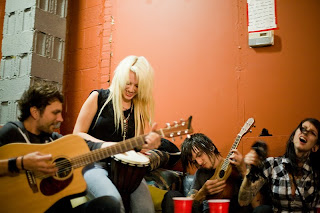 "High social capital can be described as the relationships that are forged in a community between its adults and its young people. In communities that are characterized by high social capital, parents often know the names of other children in the neighborhood; they'll offer children they know a ride; they'll cheer for children at sporting events and congratulate individuals on their successes; they'll call one another to share what they saw, particularly if anything they see is suspicious. Children who grow up in communities with high social capital tend to do well in school. In communities that are characterized by low social capital, children move through the neighborhood seemingly unnoticed; often no one at home asks about them or their schooling; sometimes children are left home alone for long periods of time without anyone checking in on them' parents in the community do not necessarily the other children nor engage with them. Children who grow up in communities with low social capital who attend private or parochial schools that foster high social capital tend to improve their academic performance."
"High social capital can be described as the relationships that are forged in a community between its adults and its young people. In communities that are characterized by high social capital, parents often know the names of other children in the neighborhood; they'll offer children they know a ride; they'll cheer for children at sporting events and congratulate individuals on their successes; they'll call one another to share what they saw, particularly if anything they see is suspicious. Children who grow up in communities with high social capital tend to do well in school. In communities that are characterized by low social capital, children move through the neighborhood seemingly unnoticed; often no one at home asks about them or their schooling; sometimes children are left home alone for long periods of time without anyone checking in on them' parents in the community do not necessarily the other children nor engage with them. Children who grow up in communities with low social capital who attend private or parochial schools that foster high social capital tend to improve their academic performance."Dr. Nancy Sulla - Students Taking Charge
Reflection Questions:
How does your school promote high social capital?
What strategies do you use to make sure students have strong relationships within the classroom?



